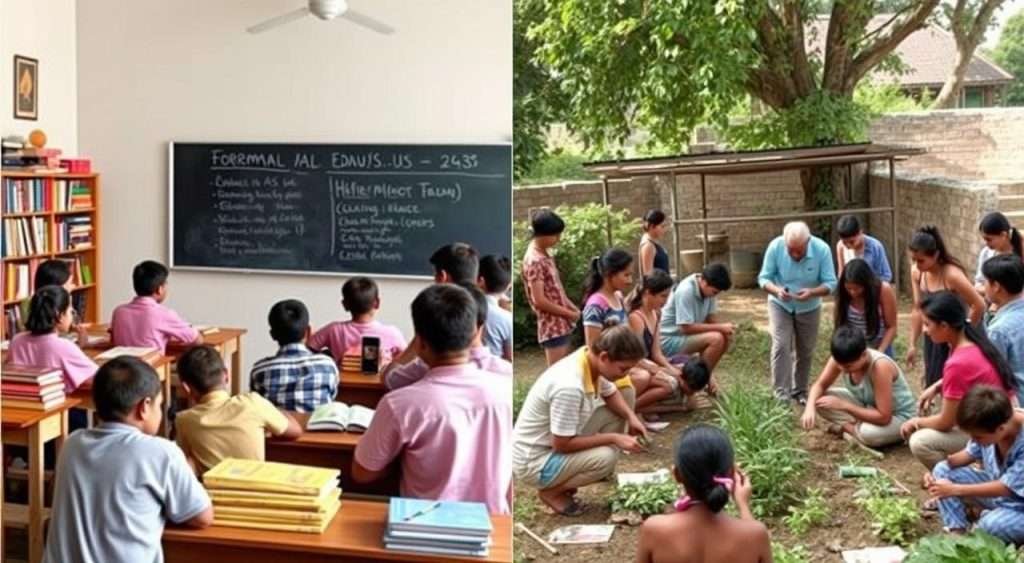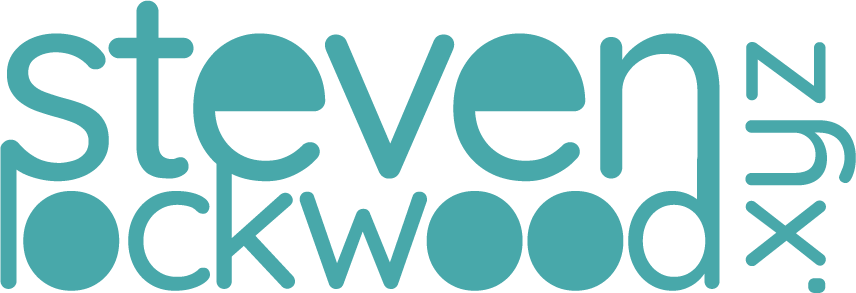In today’s world, there are many ways to learn. This can be both exciting and confusing. If you’re looking to learn more, you might wonder about all the different paths you can take. From traditional schools to new learning methods, there’s a lot to explore.
In this guide, we’ll look at the many ways to learn. You might want a formal education, a vocational path, or to learn on your own. No matter what you’re looking for, we’ll help you find it. Are you ready to see all the different ways to learn?
Key Takeaways
- Discover the broad spectrum of educational options available, from formal to informal, traditional to alternative.
- Explore the unique features and benefits of each type of education, from vocational training to online learning.
- Learn how to identify the educational path that aligns with your goals, learning style, and personal preferences.
- Understand the role of lifelong learning and self-directed education in personal and professional development.
- Gain insights into the evolving landscape of modern education and the opportunities it presents.
Unraveling the Diverse Tapestry of Educational Paths
Education has a fascinating split between formal and informal learning. Formal education is the traditional path, with a set curriculum from elementary to college. It gives out recognized degrees. Informal education, however, is all about exploring interests and learning through real-world experiences and self-study.
Formal Education: The Traditional Route
Formal education is based on the old-school way of learning in schools. It offers a clear path to grow academically. Students learn core subjects and get degrees or certifications. They also learn important skills like thinking critically and communicating well.
Informal Education: Learning Beyond the Classroom
Informal education is a different ball game, offering many learning chances. It lets people dive into their interests outside school. From apprenticeships to online courses, it’s all about taking control of your learning journey.
| Formal Education | Informal Education |
|---|---|
| Structured curriculum and recognized qualifications | Flexible, self-directed learning opportunities |
| Emphasis on core subjects and academic development | Focus on practical skills and personal interests |
| Typically takes place in traditional academic institutions | Occurs in a variety of settings, including the workplace, community, and online |
| Leads to degrees, diplomas, and certificates | Provides opportunities for lifelong learning and skill development |
Whether you go for formal education or informal learning, the goal is the same. It’s about unlocking your potential and starting a lifelong journey of growth and learning.

Embracing Traditional Education: A Time-Honored Approach
Traditional education is still very important today. It’s based on academic education and higher education. It helps people grow intellectually and socially.
Traditional education focuses on traditional education values. It teaches critical thinking and analytical skills. Students learn a lot about important subjects.
This kind of education gives students a strong foundation. It prepares them for many careers and more school.
Traditional education is also respected and recognized. Formal education from accredited schools gives degrees and diplomas. These are highly valued in the job market.
Having these qualifications opens many doors. It lets graduates confidently go after their career goals.
| Advantages of Traditional Education | Disadvantages of Traditional Education |
|---|---|
|
|
Traditional education might not be for everyone. But its importance and value are clear. It’s crucial in shaping people’s intellectual and professional paths.

“Education is not the filling of a pail, but the lighting of a fire.” – William Butler Yeats
Alternative Education: Breaking the Mold
There’s a growing movement in education that challenges traditional schools. Alternative education models focus on the whole child, promoting creativity and critical thinking. The Montessori and Waldorf methods are leading this revolution, offering unique philosophies and teaching styles.
Montessori Methods: Nurturing the Whole Child
The Montessori approach sees children as natural learners. Developed by Maria Montessori, it focuses on hands-on learning. Students learn at their own pace, with teachers guiding their exploration.
Montessori classrooms are designed to unlock each child’s potential. They use special materials and have students of different ages together. This setup encourages peer-to-peer learning and meets each child’s unique needs.
Waldorf Education: Fostering Creativity and Curiosity
Waldorf education emphasizes the arts, storytelling, and nature. Developed by Rudolf Steiner, it aims to nurture the whole child. It combines music, movement, and crafts into the curriculum.
This creates a rich learning environment that sparks imagination. Waldorf education focuses on creativity and a love for nature. It offers a unique path for children to discover their talents and passions.
Alternative education models like Montessori and Waldorf are changing the way we learn. They empower students to reach their full potential and become active, engaged citizens. As we explore more educational paths, the future of learning is full of possibilities.
“The essence of the Montessori method is its emphasis on active learning, where students are encouraged to explore the world around them and develop their own interests and capabilities.”
Vocational Education: Paving the Way to Skilled Professions
Vocational training is a strong path to many successful careers. It’s different from the usual school route. It teaches you the skills and knowledge needed for in-demand jobs.
Vocational education focuses on applied learning. Students work on real projects, gaining confidence and skills. It covers many fields, from healthcare to technology, and more. This way, everyone can find their perfect career.
“Vocational education is not just about learning a trade; it’s about discovering your passion and transforming it into a rewarding, lifelong career.”
Vocational education bridges the gap between theory and practice. It teaches tangible skills that employers want. This hands-on training boosts confidence and prepares you for your career.
It also offers fast paths to certifications and licenses. This means you can start your career sooner. It’s great for those looking to get into the workforce quickly.
Vocational education is powerful because it prepares you for the job market. It offers a practical learning experience. This way, you can start a fulfilling career in many skilled professions.
Online Education: Bridging the Digital Divide
In today’s digital world, online education is changing the game. It’s breaking down barriers and making learning accessible to all. With virtual classrooms and MOOCs, top-notch education is now available to people everywhere.
Virtual Classrooms: Redefining the Learning Experience
Virtual classrooms are changing how we learn. They let students interact with teachers and classmates in real-time. This creates a lively learning space where everyone can thrive, no matter their learning style.
Massive Open Online Courses (MOOCs): Education for All
MOOCs are making learning even more accessible. These affordable courses from top universities let people learn new things at their own speed. MOOCs open doors to digital learning, giving everyone a chance to explore and grow.
As we move forward in the digital world, online learning keeps getting better. It’s not just for those looking for a different way to learn. It’s for anyone wanting to discover new things and reach their full potential in virtual classrooms and MOOCs.
Self-Education: Embracing the Power of Self-Directed Learning
In today’s world, self-education is key for personal growth and learning for life. It lets people control their learning, follow their interests, and grow, no matter their age or background.
Self-education is different from traditional school. It lets learners focus on what they love and what they want to achieve. With the internet, finding learning resources is easy. This makes learning fun and valuable.
Learning on your own has many benefits. It makes you feel fulfilled and curious. It also helps you think critically and adapt to new situations. These skills are crucial in today’s fast-changing job market.
Self-education is for everyone, at any age. It’s not just for students. It’s for anyone who wants to learn more. By learning on your own, you open up a world of growth and happiness.
“The beautiful thing about learning is that no one can take it away from you.” – B.B. King
Self-education is a powerful way to learn for life. It lets you follow your passions, learn important skills, and find new opportunities. Start your journey of self-improvement and enjoy the rewards of lifelong learning.
Lifelong Learning: A Journey of Continuous Growth
In today’s fast-changing world, lifelong learning is more important than ever. It helps you grow your career, find new opportunities, or just learn more. Let’s look at how continuous education and professional growth can boost your career.
Professional Development: Upgrading Skills for Career Advancement
In today’s job market, being able to adapt is key. Lifelong learning lets you stay ahead by improving your skills. By taking part in continuing education and professional development, you can get better at what you do and open up new career paths.
There are many ways to learn, like online courses, certifications, workshops, and conferences. Investing in your own growth makes you more valuable to your employer. It also opens doors to new opportunities.
| Benefits of Lifelong Learning | Advantages for Career Advancement |
|---|---|
|
|
By embracing lifelong learning and professional development, you can open up a world of possibilities. It’s a path to long-term success and personal growth. Remember, “The more you learn, the more you earn” – a truth in today’s fast-changing job world.
“Continuous learning is the minimum requirement for success in any field.” – Brian Tracy
Adult Education: Unlocking Potential at Every Age
Adult education is a key to unlocking new possibilities at any age. It helps you find a new career, grow personally, or enjoy lifelong learning. This path can change your life in big ways.
Many think education is only for the young. But adult education meets the needs of people of all ages. It offers courses for professional growth and workshops for personal development. The range of adult education is vast.
Empowering Career Transitions
Adult education helps you move smoothly into new careers. It provides training, certifications, and degree programs. This way, you can move up in your field or start fresh in a new one.
Fostering Personal Growth
Adult education also supports personal growth and self-discovery. It includes language classes and creative workshops. These opportunities spark curiosity and lead to personal change.
“Education is not the filling of a pail, but the lighting of a fire.” – William Butler Yeats
Adult education can boost your career, explore new interests, or support lifelong learning. It shows the power of continuous learning. By exploring different educational paths, you can reach your full potential and succeed in today’s world.
Types of Education: A Mosaic of Opportunities
The educational world is full of diverse opportunities. Each one meets different needs and learning styles. From formal schooling to alternative and self-directed paths, there’s a lot to explore.
Formal education is the traditional path. It has a set curriculum and is taught in educational institutions. Schools, colleges, and universities offer this kind of education. It builds a strong base for learning and future careers.
Informal education happens outside of school. It comes from personal experiences, friends, or exploring topics you’re interested in. This way of learning is flexible and lets you learn at your own pace.
Alternative education breaks the mold with new ways to learn. Montessori methods focus on the whole child. Waldorf education encourages creativity and curiosity.
Vocational education is for those who want to learn a specific trade. It teaches practical skills for a career. This education is all about getting hands-on experience.
The internet has changed education with online education. Virtual classrooms and MOOCs make learning easy to access. This has opened education to more people.
Today, there are many learning pathways to choose from. Each one helps you find the right way to learn and grow.
“Education is not the filling of a pail, but the lighting of a fire.” – William Butler Yeats
Conclusion
In this guide, we’ve looked at many ways to learn, from school to online courses. Each method has its own benefits. This helps you choose the best path for your goals, whether it’s getting good grades, learning a trade, or exploring new subjects on your own.
As we wrap up, I urge you to keep learning all your life. There are many ways to learn, from school to online classes. These options help you grow, improve your career, and keep loving to learn.
Whether you’re in school, looking to get better at your job, or just want to learn something new, there’s a lot out there for you. The many ways to learn today can help you achieve your dreams. Start your journey of lifelong learning and watch your future grow with it.

